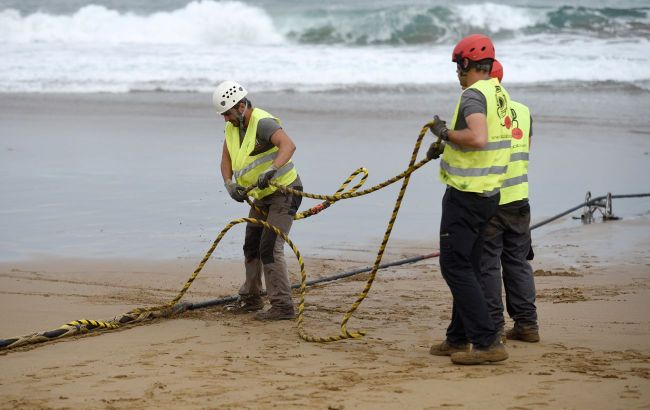Not just nukes in space: Bloomberg warns about other Russian threats
 Photo: Bloomberg speaks about new threats from the Russian Federation (Getty Images)
Photo: Bloomberg speaks about new threats from the Russian Federation (Getty Images)
The global network, which transmits almost all Internet and financial traffic, is very vulnerable to sabotage. The Russian Federation has already begun to explore the underwater infrastructure of the Atlantic Ocean, reports Bloomberg.
Why did they talk about it?
House Intelligence Committee Chairman Mike Turner said the U.S. is "sleepwalking into an international crisis" by ignoring Russia's intention to place nuclear weapons in space and use an electromagnetic pulse to disable an array of satellites that underpins its intelligence.
The article emphasized that there is an even more vulnerable 'Achilles heel', which threatens global trade, worldwide military readiness and logistics, as well as the Internet itself.
It is about an extremely vulnerable complex of underwater cables the backbone of the world’s connectivity.
Importance of submarine cable system
A report published earlier this week by Policy Exchange in Britain highlights the vulnerability of submarine cables.
The new report is a follow-up to a 2017 analysis co-authored by current UK Prime Minister Rishi Sunak.
A new report states the facts that more than $10 trillion in financial transactions, commercial payments and trade transactions take place around the world every day. More than 95% of the world's communications are carried by a network of approximately 500 cables laid across the seven seas.
A 2017 report said submarine cables come ashore in only a few remote coastal locations and often have minimal protection.
Russia has already become interested in finding vulnerabilities
The chief air marshal of Britain, Stuart William Peach, in the preface to the new report, stated that the Russian Federation has already begun to investigate the underwater infrastructure of the Atlantic Ocean as a weak point of our national security.
He notes that further east, China is strengthening its underwater defenses as part of its broader ambition to become a major military power.
Other rogue states, including Iran and North Korea, are advancing their underwater military capabilities in ways that could threaten this critical infrastructure.
Cabling system may be at risk
Bloomberg writes that with the return of dangerous competition between the great powers between the US, China and Russia, the entire structure of the system is under threat.
In particular, Russian submarines likely can descend to very deep cable sections and disrupt their operation. The option of destroying them or connecting to them for data manipulation is being considered.
What has to be done
The material indicates the need to improve the technologies that the West uses to protect cables.
Data compression concepts should also be explored, which will eventually enable more widespread use of space-based alternatives.
"On both the offensive and defensive sides, we need to invest in seabed warfare. That means improving our own undersea systems, including nuclear-powered submarines and new classes of undersea unmanned vehicles that can counter enemy ships," writes Bloomberg.
NATO members were already preparing for such scenarios
In May, it was reported that NATO was stepping up surveillance of submarines after the defense alliance warned that Russia could damage critical underwater facilities of the European Union and the United States.
Already in the fall, it became known that NATO is developing technologies that allow real-time detection of suspicious activity near critical underwater infrastructure after the Nord Stream pipeline explosions a year ago exposed the difficulties of monitoring.

